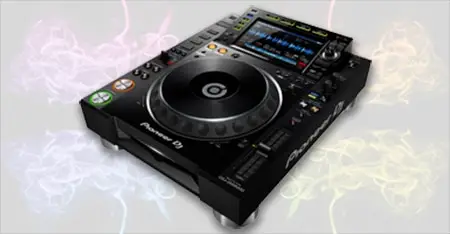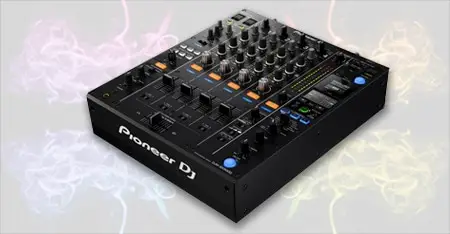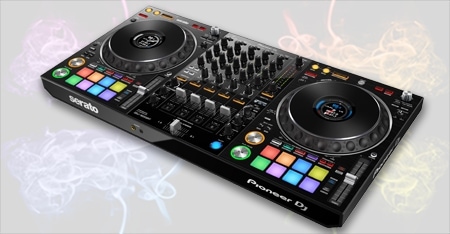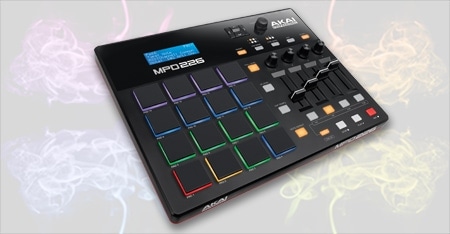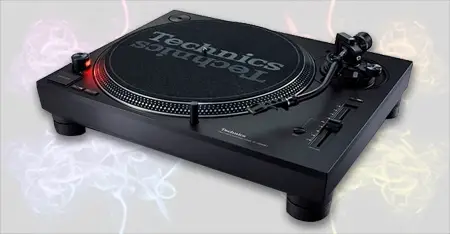
All good events and celebrations, from birthdays to weddings need a soundtrack. And that means there will always be work for mobile DJs. But…. how do you start a DJ business?
Starting any business seems hard at the start, but really it is just a bunch of small steps strung together. All you really need is get some beginner-level equipment, some music and ask around to do some free gigs and you’ll already be on your way. As you gain experience and more people know what you do then you’ll find offers for paid work comes from the most unlikely of places.
Firstly a Note on Starting a DJ Business
Any form of DJing has to start with the love of music. Mobile/event DJing also needs to come with a love of meeting new people, being organized and managing your time. All of which, of course, requires drive and discipline.
Like all jobs, there are upsides and downsides. So in this guide, we shall run-through everything you need to know to start a successful DJ business.
No matter where you are in your career, you can get started.
There are a few steps to go through to get your DJ business rolling and these include.
- Buying the right equipment
- Making contacts and promoting yourself
- Practicing (of course)
- Building your music collection
- Knowing what to charge for your services.
Let’s dive right in…
Assess What’s Out There, And Be Better
Contents
A great idea before starting properly is to work out how you can differentiate yourself from other DJs in the market.
Think over all the events and celebrations you have been to and note what was done well, and what wasn’t. Decide what you could offer that’s slightly different and what extra touches you can bring to the table.
This could be something as simple as exceptional organization and service as you noticed a lot of DJ’s seem to lack in one area or another.
Realize That It Is Your Job
Mobile DJing is in a strange place currently, as anyone with the laptop seems to think that they can DJ. This goes back to my point above about being a professional and organized.
Because, while it may seem like a market is saturated this is not actually the case. What is true is that the market is saturated with unprofessional DJs… who are not quite sure what they are doing.
This is where you can stand out by:
- Investing in pro equipment
- Spending time practicing
- Putting on a professional front
- Being organized from day one
Music Is the Most Important Aspect When You Start a DJ Business
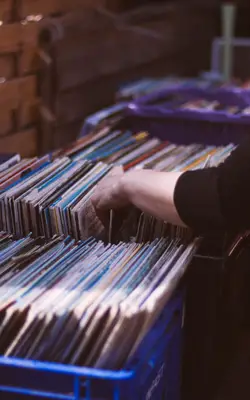
Before we dive into equipment, you should realize that the main investment over your career will be in purchasing high-quality, legally downloaded music.
This is another thing that differentiates yourself as a professional and is key in how to start a DJ business. It is also the reason you charge a decent wage and earn a good living for the work that you do.
Keep Your Pricing Transparent and Simple
Many different DJ’s offer different packages, with different levels of fees. However, it can be an idea to just have one clear-cut fee with no hidden setup costs, transport fees, etc.

Aside from being very clear for your client, this actually allows you to charge MORE than you may if you broke things down.
What I mean by this is, if on top of your basic fee you include a setup fee or charge for transport for example, then people will feel entitled to haggle with you.
However, if you can work out how much all of this would cost you as an average, and then put a healthy profit margin on top, you can present a clear and flat fee to your client.
This makes things very easy for them and, because it is not broken down into individual parts, they feel less inclined to start having individual fees lessened or removed.
The only exception to this may be if you choose to do a discount on the offseason. You could have a summer rate and then a cheaper rate during winter when you are less busy. This is entirely up to you of course.
To Start a DJ Business, Be Prepared to Commit
While it appears mobile DJs only work for a few hours per week, the job is actually a large commitment.
As, when you are not gigging, you will either be practicing, buying music or doing business admin like booking more gigs and paying bills, etc.
It is far from a normal job and the hours can be unsociable.
You will often find yourself working evenings and weekends, so this is something you need to be comfortable with.
Therefore it is worth having a serious think to decide if you can commit before you start purchasing equipment.
What You Need to Get Started
DJ Controller
In terms of equipment, an all-in-one DJ controller offers the most portability and flexibility. You no longer need to carry multiple decks (see our recommended decks here) and a mixer instead you can just take one unit.
See the DJ controller that I recommend here.
However, if you want to present a professional image and put on the best events possible, then you should be looking to invest in the best model you can. Doing so also means you will not have to replace or upgrade it for a long time.
Amps and Speakers
While a lot of venues have a sound system pre-installed, if they don’t then clients will expect you, as the DJ, to provide one.
For this, you will require an amp that through which you connect your controller to the speakers. Here are the recommended units for each budget.
TK
Depending on the size of the venue you can often get away with two speakers, but be prepared to purchase or hire more. Recommended units include
TK
Microphones
Whether you offer this service if your choice, but if you do then you’ll need to be comfortable doing announcements or being the master of ceremonies. This will be discussed with your client beforehand so you will know what to expect. In any event, it is worth having a decent microphone in your kit, even if it’s for the client themselves to use.
TK
Have Spare Cables
The final bits of equipment you will require is all the necessary cables to link your equipment together. You’d be surprised how often this can scupper a gig. So, always have good quality, durable cables and always carry spares!
Once Again, the Most Important Thing Is Your Music
All of the equipment listed above would be useless without a large music library.
While this can get expensive, a good way to get a lot of music at reasonable prices is to buy compilations of things like wedding tracks. These tend to work out far cheaper than buying individual tracks. Second-hand CDs (which you then rip to digital files) are also a bargain goldmine these days.
Other things to consider:
- Get business cards made and carry them always, you never know when someone may ask for one
- A website for which to promote your services and refer people to
- A decent phone that enables you to run your business while on the move
- A vehicle large and reliable enough for you to move your equipment around
Love DJ gear?
So do we, check out our favorites…
Getting in Some Bookings
In times gone by, to start a DJ business you could just place a large advert in the Yellow Pages. However, times have changed…
These days, one of the best ways to get work is via referrals. A good way to do this in bulk is to visit things like event organization summits, wedding fairs, and fashion fairs.
Here you can walk around all the different stalls, chat and familiarize yourself with other vendors in the area. It is from these personal connections that you can get a lot of bookings, and make a lot of money.
Remember that networking in this way is give and take, so keep your contacts organized. This means you will also be able to refer work to others (such as florists, bridal shops, caterers, photographers, etc).
It’s very much a two-way street so as you refer work, they will be inclined to refer some back to you.
There are also all sorts of thriving communities online for events, weddings, and retail events. Be sure to find the big sites within your country, some may even have forums that focus on your local area, and participate in them regularly to make your name known.
Again you will be surprised how many referrals come from even passing acquaintances. As long as they know what you do of course.
Practicing
One of the things that set apart professionals from hobbyist DJs is how much effort they have put into rehearsing.
The great thing about this is that you all you need to do is play music and have fun while at home. Be sure to do this for at least a few hours every week. Even once you start making bookings.
It’s worth putting in the practice as you will always learn new tricks. Buying new music helps keep you interested as well as teaching you different ways to put them together.
Also, practice performing in front of people as much as possible.
For this, you can offer to DJ a friend’s celebrations for free or even throw parties yourself. Just to get used to performing with a crowd, it is also a great way to speed up your learning.
The sooner you can get out and practice in front of people the better.
Start a DJ Business Plan
While business plans tend to be for applying for loans, if possible it is best to avoid debt when starting your business. Instead use the plan to work out timelines, a step-by-step and a budget with which to manage your finances.
This means you can work out how much money you have available and which equipment to spend it on. As well as sketching out which type of market you plan to target. Whether that is festivals, karaoke, weddings, proms or focusing on retail or fashion events.
The actual variety of events that DJs are being employed for these days has expanded greatly.
So do some brainstorming and put them in your business plan to make sure you are taking full advantage of everything that is on offer.
Lease equipment?
As mentioned above, if possible, you want to avoid going into debt to start a DJ business. That said, if you don’t have any money on hand then leasing is an option.
There are very reasonable rates available meaning you can get the equipment you need, even high-end gear, without going broke.
This would also be good motivation to get out there and start working. Because the quicker you clear your lease then the quicker you are in pure profit.
Registering as a Business & Tax
You’ll need to check local laws and regulations to see what needs to be done to register as a business. Most of the time this is a fairly simple process and is usually cheap, if not free, to do.
When starting, the chances are, you’re not going to be earning huge amounts of money. So often you will be able to manage finances and do tax returns yourself.
Of course, as you start generating more money and profit you’ll be able to pay an accountant. They can help take your business to the next level plus manage any further registrations you might need.
Contracts Are Essential in How to Start a DJ Business
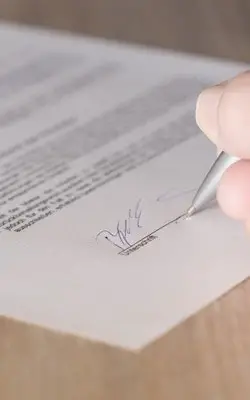
This would be another area that separates professional DJs from hobbyists. A lot of DJs don’t provide contracts to their clients, which is, of course, a terrible idea.
Not only is a contract there to protect the client, but it is also there to protect you. For example, if a client pulls out then you should have a contingency plan i.e a non-refundable deposit.
It may be that you include cutoff times. For example, if they cancel within 24 hours of the show then you still get your full fee, as you’ll be unlikely to rebook another event in time.
Check What Insurance You Need to Start a DJ Business
This is another area where you will have to look at your local regulations. You will often be required to have some form of insurance (usually public liability) to protect yourself and your company in case anything goes wrong.
In case your equipment gets damaged or stolen then you’re probably going to want insurance here as well. Although this normally comes down to personal preference, of course, it is highly recommended.
The last thing you want is to lose business because you can’t replace equipment damaged beyond your control.
Have Some Good Examples Online
One area where you see DJs failing is by not being able to show good examples of what they do.
This can be as simple as recording a good mix and putting it online for clients to hear as an example of what you do.
Or, even better, as you do gigs then take some video and show that on your website. A video will show potential clients that you can keep a crowd entertained.
If you do play a professional event (like a wedding or fashion show), then often you can get high-quality video from a photographer also employed there.
Be sure to make friends with as many people in the industry as there are many different ways you can help each other out.
Know How Much to Charge
Being a mobile DJ is one of the best ways to get paid and earn a decent living as a DJ.
An experienced wedding DJ, for example, can earn in the region of $500 to $2,000 per event. Of course, this again comes down to the professionalism aspect.
You will also find the more gigs you do, the more referrals you get and the easier it becomes to charge a higher rate.
After all, if someone has referred you and they paid $2,000 then the next person is also going to expect to pay the same. This method of getting work makes the pricing conversation very easy.
Think of Other Revenue Streams You Can Add On
A good way to earn more money on top of your gigs is to offer extra services to your client.
This can take the forms of things like offering projection or sourcing photographers and videographers. You can also add extra elements like lighting or karaoke to the mix.
All of these can be value adds that you can charge on top of your initial purchase costs. Best of all, they largely won’t cost you more as you’re already going to the event and setting up equipment.
Why Does it Pay So Well?
This question will come up either from clients, or you may wonder it yourself.
The reason event/mobile DJs can and should charge a decent amount is because of the preparation and pressure involved. That is the preparation that goes into buying equipment and music, as well as practicing. And the pressure of performing for clients on perhaps the biggest day of their lives (in the case of events).
This can all be stressful as, of course, you want to make sure that you get everything right.
However, if you are undercharging, or the client has haggled you down, then you will feel less inclined to put in the effort required to make a day or event special.
So, never feel guilty about charging well for your services.
What Will You Be Doing on an Average Day as a DJ
A large portion of your time outside of DJing will be spent marketing. Whether this is online, at conventions or networking, you always want to be nurturing future bookings.
Alongside that, you will also be preparing for upcoming events:
- This involves meeting with clients to discuss their needs as well as getting the running order for the event
- You also want to visit the venue, have a walk around and familiarize yourself with the space
- This will help you work out if you need any specific or specialist equipment is required
You will also be constantly updating your music library, based on both:
- Recent popular music
- Any requests your clients have
You should also be following up with previous clients. By this, I mean asking for
- Testimonials
- Feedback
- Referrals
All of which will help you to get future bookings. Most people don’t mind being asked if they know anyone that may need your services. Don’t be pushy but make this part of your regular follow-up.
Using Record Pools
Record pools are excellent resources for gaining access to large collections of music. Pools like BPM Supreme are subscription services that give you access to a range of music including exclusive remixes.
As well as being cost-effective they can also help reduce the time in searching for new music as many are curated to a high standard.
Check out this article for an in-depth comparison of record pools and what they offer.
Conclusion On How to Start a DJ Business
There have been many points covered in this how to start a DJ business article so it may be easy to get overwhelmed. Don’t let it.
You only need to learn one section at a time and everything will fall into place.
As long as you are spending time each week:
- Nurturing the growth of your business ie networking
- Honing your skills
- Building your music collection
Then you will find you can learn everything you need to whilst also building momentum.
Being a DJ is one of the most unique jobs in the world.
Many DJs report huge job satisfaction, disbelief even, that they get paid for doing something that is, ultimately, massive fun.
And that’s the key. To remember that as you learn all these techniques they become second nature. Pretty soon you’ll be able to show up at events, relax and have fun while being paid for it.
If you have any questions about anything discussed in this article then drop them in the comments below and I will respond to each one.
FAQs: How to Start a DJ Business
How much does it cost to start a DJ business?
The cost to start a DJ business varies a lot depending on how small you want to start and the type of events you are aiming to book. For example, if you are aiming to play venues that already have a sound system then you can start simply with a laptop and a collection of tracks to play. So, in this case, starting your business equipment-wise would only cost a few hundred dollars.
You can even do marketing for free by registering social media accounts and then posting content and reaching out to potential clients. In this case, the only cost of marketing would be your time.
If you want to be a full-service DJ business then the startup cost can go up to a few thousand dollars. This is because you will need to buy equipment upfront. This includes a decent sound system as well as a laptop, DJ controllers (or decks, see our recommended model here) and a big enough music library to play for the amount of time that you are booked for. Many DJs start small and just buy the bare essentials. Then as they book more and more gigs they are able to purchase bits of equipment as they need them.
One way to keep costs down initially is to simply rent any equipment you need. This means, for example, you could get a top-of-the-range sound system for the rental price of only a couple of hundred dollars instead of spending anywhere from $3-5000 to purchase it yourself. The benefit of doing this is that any rental costs you do incur you can include in the quote you give to your potential client.
How much money does a DJ make?
The amount of money you can earn as a DJ depends on the type of events you want to play and also your experience. A DJ with years of experience, playing corporate events or weddings, for example, is able to charge upwards of a couple of thousand dollars. Of course, this is dependant on how long they are required to play for and if they are expected to bring any equipment with them. Often a venue will have equipment in-house meaning a DJ only has to show up with their music. However, if the DJ is also expected to bring things like decks (see our recommended decks here) and the sound system then they are able to charge a lot more.
For club events then the amount you can earn depends on how well-known you are. When starting out a DJ will often play support slots at club nights for free or minimal pay as it is an opportunity for their name to become more widely known. As they become more famous and established then they are able to charge more, for example, a known local DJ could earn $50-100 per hour.
As DJs become more widely known and famous around the whole country (or world) then their earning potential per gig is almost uncapped. This is because a promoter is able to sell tickets on the back of having that DJ booked.
What next?
- Have questions or comments about this article? Drop them below!
- Want more info on how to DJ a wedding properly? Check out this guide.

